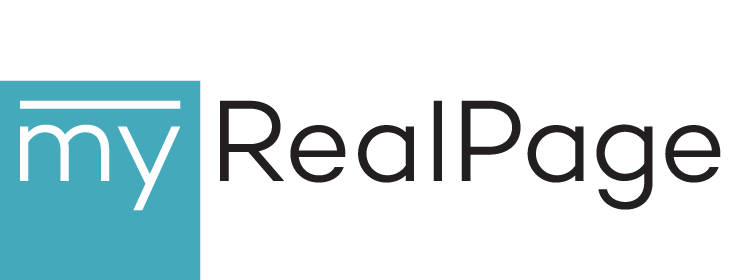A Checklist for Building Your Real Estate Marketing Strategy

It’s that time of year again.
Time to start thinking about next year — and how you’re going to make it your best year in real estate yet.
Crushing your 2023 real estate business goals requires a killer 2023 real estate marketing strategy. The sooner you can create your strategy, the sooner you can execute.
Ready to get to work on your strategy, but not sure exactly what you should be coming to the table with?
Here’s a checklist for what you need to build your 2023 real estate marketing strategy.
Psst: refresh your memory on how to build a real estate marketing strategy.
Business Goals
A strategy isn’t a strategy without goals to accomplish.
In order to create an effective real estate marketing strategy, you need to know what you’re striving for. Establishing business goals for the next year should be the first thing you do.
S.M.A.R.T goals are the way to go here — specific, measurable, achievable, relevant and time-bound.
Here are examples of S.M.A.R.T goals for real estate agents to inspire your own for 2023:
- Increase successful real estate deals by 15% between January 1 and December 31
- Request real estate testimonials from clients within one month of a deal closing
- Write and publish four new real estate blog posts per month
- Increase real estate newsletter sign-ups by 20% before June 30
- Maintain four annual touchpoints with past clients this year

Target Client
Who will your 2023 real estate marketing strategy be targeting?
Maybe your target client hasn’t changed from last year, or the year before. That’s fine!
The important thing is that your strategy is focused specifically on landing your target client. This means you need to know them, their needs and their wants incredibly well.
That’s why creating profiles for your target client is a great practice, even if your target hasn’t changed from year to year.
You want to stay up-to-date and familiar with details about who they are, such as their age, career, income, interests, opportunities and challenges so that your marketing strategy can target them effectively.
The important thing is that your strategy is focused specifically on landing your target client. This means you need to know them, their needs and their wants incredibly well.
Tools and Platforms
Before you create a real estate marketing strategy, you should think about what tools and platforms you’ll be using to deliver your strategy.
Most agents use a combination of the following:
- Personal real estate website
- Blog (hosted on their website)
- Website analytics tool
- Email marketing service
- Social media platforms (e.g., Instagram, Facebook, LinkedIn, TikTok, Twitter)
- Social media analytics tool
- Online advertising (e.g., Facebook Ads, Instagram Ads, search engine ads)
- Print advertising (e.g., newspaper and magazine ads, real estate postcards)
The tools and platforms you use need to make sense for your unique business and goals.
If your target client isn’t on Twitter, focus on a different social media platform. If your goal is to increase website traffic, it’s time to start making use of search engine ads.
Budget
Reinvesting in your real estate business is essential. To make money, you need to spend money.
Your marketing strategy will require a budget. You should have a sense of what that budget is before you start establishing tactics so that you can plan within your means and allocate your budget effectively.
Not every part of your marketing strategy will have a dollar sign attached to it. The elements you will need to budget for are:
- Your real estate website. For things like hosting costs.
- Subscriptions. For tools and services, like an email marketing platform and analytics tools.
- Advertising. The cost of running ads, digital and/or print.

Time
There are actually two types of budgets you should be considering before sitting down to create your 2023 real estate marketing strategy.
A monetary budget, like we just discussed. And a time budget.
A time budget is how much time you realistically have to allocate to executing different aspects of your marketing strategy.
Like your monetary budget, it’s important that you’re realistic about what you can spend and where. Overextend yourself, or spend too much in one area and too little in another, and you’ll find that you can’t execute your strategy according to plan.
Be motivated but realistic. If one of your goals is to publish four new blog posts per month, how many hours per week will that require? To achieve it, you might have to allocate more time to that part of your strategy and less to another (or consider what support you might need to make it happen — more on that next).
Remember: your marketing strategy is one part of your business. You still need to allow time for your other business activities, such as showing homes and drafting offers. Here are some key productivity tips for real estate agents.
Support
You can’t do it all — maintain an active real estate blog, reach out to past clients, show houses, host open houses, create ads, negotiate deals, run social media accounts — on your own.
Ahead of drafting your real estate marketing strategy, ask yourself: “What can I outsource or delegate?”
If you don’t have a budget for outsourcing work, the answer to that question might be nothing. In that case, you may need to pare back your plans or reevaluate your time budget.
If you do have some budget, there are plenty of marketing activities that you can outsource not only to save yourself time, but to guarantee results. Things like…
- Blog post writing
- Newsletter design
- Digital ad creation and deployment
- Social media management
You could delegate this work to a skilled freelancer or consider hiring a real estate marketing assistant.
Ahead of drafting your real estate marketing strategy, ask yourself: “What can I outsource or delegate?”
Last Updated on November 7, 2024 by myRealPage


